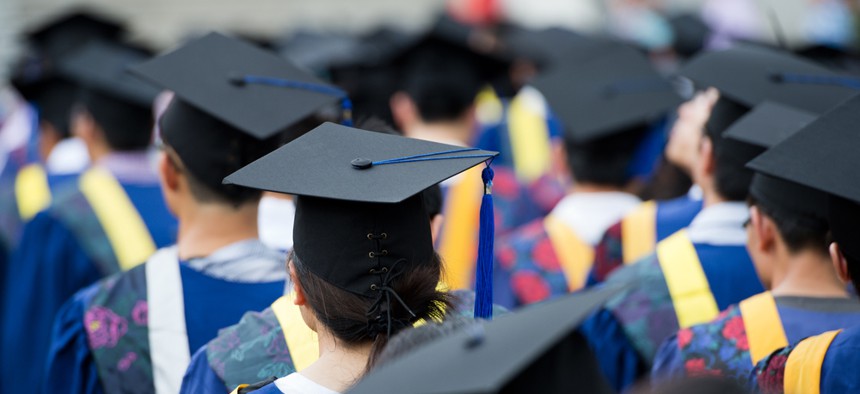
hxdbzxy/Shutterstock.com
One in Four Americans With College Degrees Shouldn’t Have Bothered
A college education by no means punches your ticket into the middle class.
Roughly 25% of those with bachelor’s degrees in the US derive no economic benefit from their diplomas.
That’s the takeaway from analysts at the Federal Reserve Bank of New York . The same analysts have argued in the past that the benefits of a college degree, on average, still outweigh the costs . (Other Fed studies have suggested that, on average, those with bachelor’s degrees earn $800,000 more than people who finished only secondary school.) And while median earnings of college students typically remain between 60% and 70% higher than those with high school diplomas, there’s still a surprisingly large chunk of students who don’t do any better than those who never went to four-year schools.
The Fed’s analysts divided the pool of college degree holders into quartiles. They found that people in the lowest quartile earned roughly the same amount of money as those with only a high school diploma.

The analysts wrote:
These figures suggest that perhaps a quarter of those who earn a bachelor’s degree pay the costs to attend school but reap little, if any, economic benefit. In fact, once the costs of attending college are considered, it is likely that earning a bachelor’s degree would not have been a good investment for many in the lowest 25 percent of college graduate wage earners. So while a college degree appears to be a good investment on average, it may not pay off for everyone.
Now in some senses, this isn’t a surprise. There’s always a broader distribution of outcomes that get buried under averages. But it is an important reminder that a college education by no means punches your ticket into the US middle class.
( Image via hxdbzxy / Shutterstock.com )
NEXT STORY: Grade Inflation: Does It Matter?






